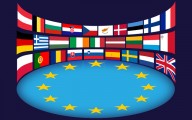Europe Echoes Australia’s Call for Big Tech to Pay Publishers
February 23, 2021
As the Australian law requiring Google and Facebook to pay publishers for content nears passage, news publishers in the European Union are urging legislators to copy that law. The European Publishers Council supports the Digital Markets Act (DMA) to be included in legislation, forcing binding arbitration if the two parties can’t agree on payments. In the U.S., Congress members intend to introduce legislation to make it easier for smaller news organizations to negotiate with Facebook, Google and other Big Tech platforms.
Bloomberg reports that, “the EU already agreed [to] a separate copyright law to help publishers seek compensation from the platforms,” and DMA lead lawmaker Andreas Schwab said the law “protects people’s ability to share content while supporting quality journalism online.” But the tech companies are wriggling out of the law; France applied the copyright law, but its competition authority had to force Google to pay up.

The two parties “eventually reached a deal in January with a French publishers’ union that it will negotiate individual license agreements.” News Media Europe executive director Wout van Wijk stated, “we would welcome a clause that mandates binding arbitration.”
According to Facebook, “Australia’s proposal of compulsory arbitration sets a precedent where a government gets to decide who enters into content agreements and ‘how much the party that already receives value from the free service gets paid’.” But, notes Bloomberg, “it’s far from certain whether a binding arbitration clause pushed for by publishers would end up in EU law as part of the new Digital Markets Act.”
Meanwhile, a compromise was just announced between Facebook and the Australian government. “Facebook will restore news pages in Australia after the government agreed changes to a planned media code that the company said would allow it to retain greater control over what appears on its platform,” reports CNN. Australia’s proposed legislation initially “allowed media outlets to bargain either individually or collectively with Facebook and Google — and to enter binding arbitration if the parties couldn’t reach an agreement.”
Now the government says it will introduce a new provision that “must take into account whether a digital platform has made a significant contribution to the sustainability of the Australian news industry through reaching commercial agreements with news media businesses.”
Reuters reports that U.S. representative Ken Buck (R-Colorado), the top Republican on the House Judiciary Committee’s antitrust panel, and a bipartisan group of other representatives plan to introduce a bill to enable “smaller news organizations to negotiate collectively with Facebook and Alphabet’s Google.”
He added that the bill is “similar to a 2019 bill co-sponsored by panel chair David Cicilline (D-Rhode Island), which would have allowed small publishers to band together to negotiate with big gatekeepers like Facebook and Google without facing antitrust scrutiny.”
“What publishers have experienced is that platforms go to them one by one, make them sign NDAs and try to optimize per publisher without publishers being able to compare notes,” said News Media Alliance president and chief executive David Chavern. “Big national publishers probably have the capacity to get their own deals. If you look at smaller publishers, the only way to get some fair value is if they act together.”
The Independent reports that, according to Internet pioneer Tim Berners-Lee, Australia’s proposed law that would make Big Tech pay for news “could disrupt the established order of the Internet.” More specifically, he is referring to the “proposed New Media Bargaining Code,” which, he said, “risks breaching a fundamental principle of the web by requiring payment for linking between certain content online.” He added that, “if the code is deployed globally, it could ‘make the web unworkable around the world’.”

No Comments Yet
You can be the first to comment!
Sorry, comments for this entry are closed at this time.